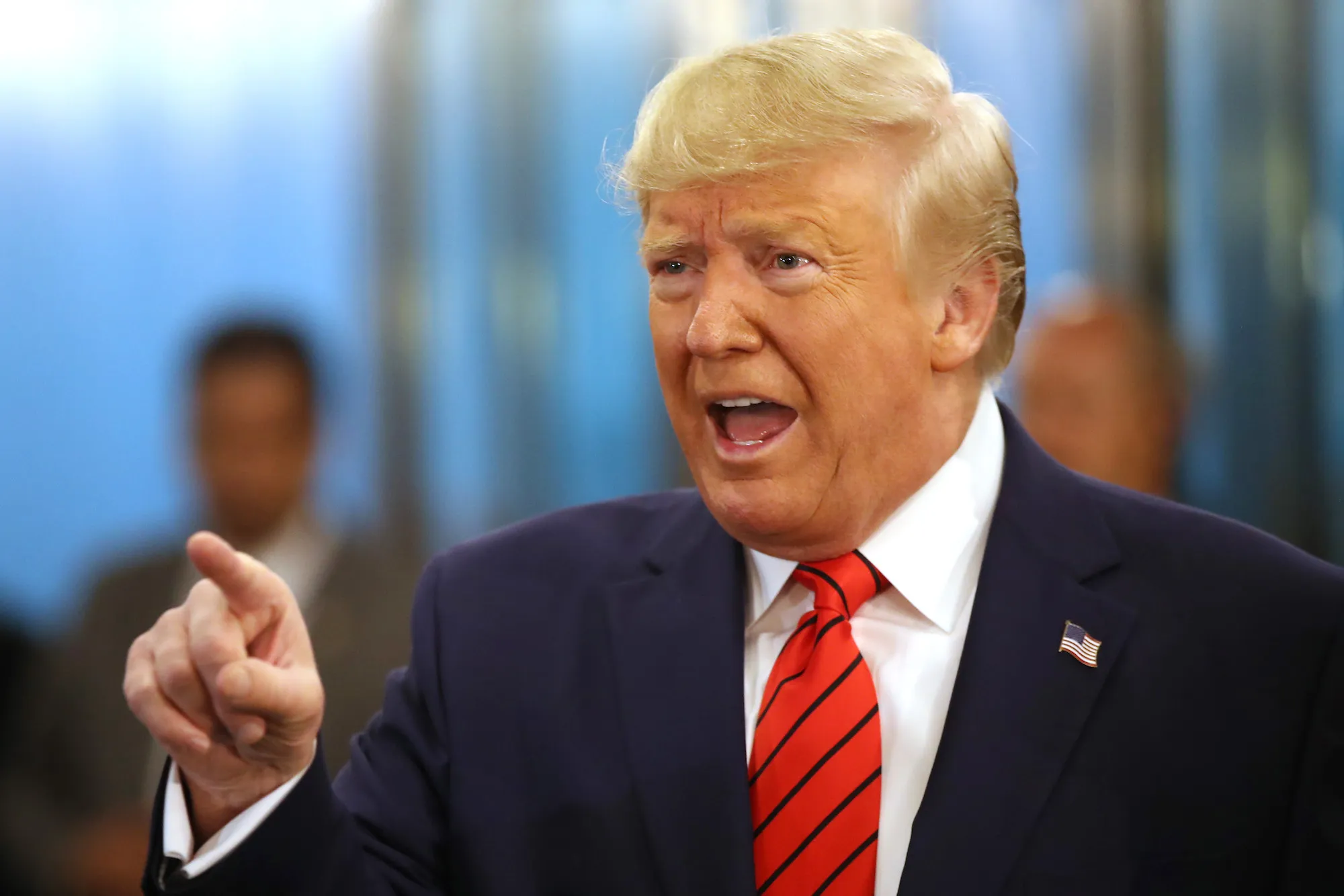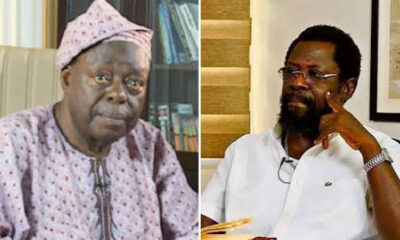Top Stories
Trump pledges to end birthright citizenship on first day in office

Former President Trump is returning to his calls to remove birthright citizenship, with his 2024 White House campaign announcing Tuesday he would seek to end it via executive order on his first day in office.
Trump announced his plan on the 125th anniversary of United States v. Wong Kim Ark, the Supreme Court case that established the constitutional right to birthright citizenship.
The proposal echoes a longtime demand of immigration restrictionists and a measure Trump toyed with while in office, attracting criticism from both immigration advocates and legal experts.
Most experts agree that a president does not have authority to end birthright citizenship through an executive order, primarily because the practice is enshrined in the Constitution.
The 14th Amendment grants citizenship to those “born or naturalized in the United States, and subject to the jurisdiction thereof.”
The widely accepted interpretation of that amendment — that it applies to children born in the United States regardless of the parents’ immigration status — has held since an 1898 Supreme Court case involving a U.S. citizen with Chinese parents.
The 14th amendment was adopted after the Civil War to guarantee equal rights for former slaves – immigration restrictionists argue that excludes the children of other groups like undocumented immigrants from its benefits.
“As members of the Reconstruction Congress explained in 1866, the narrow exception to birthright citizenship applied only to the children of diplomats and those born into Native American tribes, who were under the ‘jurisdiction’ of a separate sovereign and did not need to comply with all U.S. laws,” wrote Amanda Frost, a professor of law at the University of Virginia and author of “You Are Not American: Citizenship Stripping from Dred Scott to the Dreamers.”
“In contrast, immigrants and their children living in the United States were and are required to follow all federal and state laws or face criminal and civil penalties and so are fully ‘subject’ to the nation’s ‘jurisdiction.’”
According to the Trump campaign, the executive order “will explain the clear meaning of the 14th Amendment,” which it says is that the children of foreign nationals born in the United States are not subject to the jurisdiction of the United States as defined in the Constitution.
During Trump’s term in office, a draft executive order to that effect was circulated, and the idea was revived shortly after Trump’s loss to President Biden in the 2020 election.
But Trump had floated ending birthright citizenship earlier in his presidency.
Trump in 2018 said in an Axios interview that he planned to issue an executive order ending birthright citizenship, setting off a political firestorm.
“It was always told to me that you needed a constitutional amendment. Guess what? You don’t,” Trump said at the time.
While an executive order altering the interpretation of the 14th amendment would likely face legal challenges, its proponents sought to take the case to the courts, in hopes of getting a favorable Supreme Court outcome.
Supporters of the measure lauded the idea, betting on a judicial revocation of birthright citizenship.
“This will set up the court fight — the order will be enjoined, case will eventually reach SCOTUS, which then will finally have to rule on the meaning of ‘subject to the jurisdiction,’” wrote Mark Krikorian, executive director of the Center for Immigration Studies, a restrictionist group that calls for massive reductions in immigration.
Yet Trump did not trigger that court fight on the way out of the White House.
Like in 2016, Trump has sought to make immigration and border security a top campaign issue.
In its release Tuesday, the Trump campaign dove into the fight over the meaning of “jurisdiction,” and falsely claimed that the United States has “become one of the few countries in the world to extend citizenship to the children of illegal aliens even if both parents are not citizens nor even legally present in the United States.”
A broad majority of countries in the Americas have full birthright citizenship – Colombia and the Dominican Republic have some restrictions – and much of Western Europe employs a limited version of birthright citizenship.
Experts say that eliminating birthright citizenship in countries with high immigration carries inherent risks.
Germany, for instance, liberalized its citizenship rules after decades of imposing a strict system that negatively impacted many children of immigrants.
“The situation led to a few generations of resentful, displaced youths with only partial allegiance to the nation of their birth,” wrote Alex Nowrasteh, vice president for economic and social policy studies at the Cato Institute shortly after Trump’s 2018 Axios interview.
“Noncitizens born in Germany formed ‘parallel societies.’ They were more prone to crime and political ideologies like radical Islamism or Kurdish nationalism,” wrote Nowrasteh.


 Top Stories7 hours ago
Top Stories7 hours agoDele Farotimi Speaks on Lying Against Afe Babalola After Gaining Freedom

 News16 hours ago
News16 hours agoBREAKING: OZA CARNIVAL SECURES TOLARAM GROUP, ZENITH BANK PARTNERSHIPS

 Politics7 hours ago
Politics7 hours agoPDP Picks Holes In President Tinubu’s Media Chat

 Top Stories7 hours ago
Top Stories7 hours agoCourt Orders DSS To Release Miyetti Allah President Pending Trial

 News7 hours ago
News7 hours ago100+ Merry Christmas Wishes and Prayers to Send to Family & Friends on Xmas 2024

 Entertainment6 hours ago
Entertainment6 hours agoProphet Odumeje issues warning to those discrediting his miracles

 Entertainment6 hours ago
Entertainment6 hours agoComedian AY Clarifies Claims Of Shading Funke Akindele, Toyin Abraham,Ladies In Hollywood

 Entertainment5 hours ago
Entertainment5 hours agoSeyi Edun wins hearts as she makes peace with Toyin Abraham, shows support for her new movie; Toyin reacts (Video)







